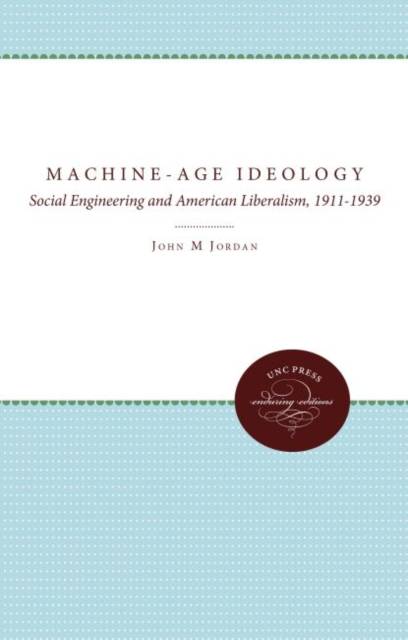
- Afhalen na 1 uur in een winkel met voorraad
- Gratis thuislevering in België vanaf € 30
- Ruim aanbod met 7 miljoen producten
- Afhalen na 1 uur in een winkel met voorraad
- Gratis thuislevering in België vanaf € 30
- Ruim aanbod met 7 miljoen producten
Zoeken
Machine-Age Ideology
Social Engineering and American Liberalism, 1911-1939
John M Jordan
Paperback | Engels
€ 91,95
+ 183 punten
Omschrijving
In this interdisciplinary work, John Jordan traces the significant influence on American politics of a most unlikely hero: the professional engineer. Jordan shows how technical triumphs--bridges, radio broadcasting, airplanes, automobiles, skyscrapers, and electrical power--inspired social and political reformers to borrow the language and logic of engineering in the early twentieth century, bringing terms like efficiency, technocracy, and social engineering into the political lexicon. Demonstrating that the cultural impact of technology spread far beyond the factory and laboratory, Jordan shows how a panoply of reformers embraced the language of machinery and engineering as metaphors for modern statecraft and social progress. President Herbert Hoover, himself an engineer, became the most powerful of the technocratic progressives. Elsewhere, this vision of social engineering was debated by academics, philanthropists, and commentators of the day--including John Dewey, Thorstein Veblen, Lewis Mumford, Walter Lippmann, and Charles Beard. The result, Jordan argues, was a new way of talking about the state.
Originally published in 1994.
A UNC Press Enduring Edition -- UNC Press Enduring Editions use the latest in digital technology to make available again books from our distinguished backlist that were previously out of print. These editions are published unaltered from the original, and are presented in affordable paperback formats, bringing readers both historical and cultural value.
Originally published in 1994.
A UNC Press Enduring Edition -- UNC Press Enduring Editions use the latest in digital technology to make available again books from our distinguished backlist that were previously out of print. These editions are published unaltered from the original, and are presented in affordable paperback formats, bringing readers both historical and cultural value.
Specificaties
Betrokkenen
- Auteur(s):
- Uitgeverij:
Inhoud
- Aantal bladzijden:
- 352
- Taal:
- Engels
Eigenschappen
- Productcode (EAN):
- 9780807857366
- Verschijningsdatum:
- 1/09/2010
- Uitvoering:
- Paperback
- Formaat:
- Trade paperback (VS)
- Afmetingen:
- 152 mm x 229 mm
- Gewicht:
- 517 g

Alleen bij Standaard Boekhandel
+ 183 punten op je klantenkaart van Standaard Boekhandel
Beoordelingen
We publiceren alleen reviews die voldoen aan de voorwaarden voor reviews. Bekijk onze voorwaarden voor reviews.











